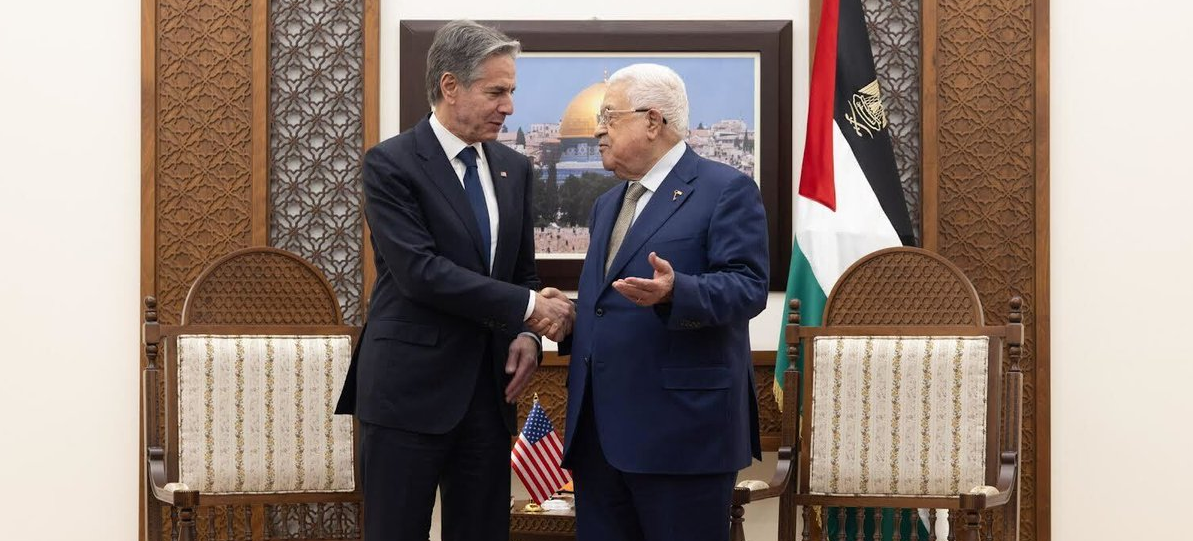Blinken Leaves Middle East, Hostage Deal Discussions Resume
After negotiations between Israel and Hamas stalled on Wednesday following Israeli Prime Minister Benjamin Netanyahu's rejection of a counteroffer forwarded by Hamas responding to last week's proposal, US Secretary of State Antony Blinken, though reportedly optimistic, left the region on Thursday...
Facts
- After negotiations between Israel and Hamas stalled on Wednesday following Israeli Prime Minister Benjamin Netanyahu's rejection of a counteroffer forwarded by Hamas responding to last week's proposal, US Secretary of State Antony Blinken, though reportedly optimistic, left the region on Thursday without a resolution. Hamas officials traveled to Egypt to meet with Egyptian and Qatari officials.1
- Blinken said that Hamas had presented some 'non-starters,' but there was 'space to continue to pursue an agreement,” explaining that negotiations such as these require a back and forth. Netanyahu called Hamas' counterproposal 'delusional.'2
- On the tail end of Blinken's diplomatic tour through the region, he met with Palestinian Pres. Mahmoud Abbas on Wednesday to discuss the war in Gaza and the future of Abbas's Palestinian Authority (PA), which partially governs the West Bank. Blinken reiterated the US' goal to see a 'revitalized' and reformed PA govern Gaza after the war.3
- In contrast, Israeli officials have argued that, even after reform, the PA cannot take over Gaza's administration. PA officials, such as Palestinian Prime Minister Mohammad Shtayyeh, have called for unity among Palestinian factions, including Hamas. Shtayyeh said last week that the PA and Hamas were engaged in Egyptian and Qatari-mediated talks.4
- Even as negotiations resume, Netanyahu ordered Israeli forces to prepare to advance into Gaza's southern city of Rafah on the Egyptian border which is packed with over half of Gaza's 2.3M population, according to the UN. Blinken said that Israel must 'put civilians first and foremost,' but he did not call for Israel to avoid moving into Rafah.5
- Gaza's health ministry reports that the conflict has killed over 27K people in the Gaza Strip, the majority of whom were women and children. The war has also created a rapidly deteriorating humanitarian situation. The official Israeli death toll on Oct. 7 stands at around 1.2K people (and there are still over 100 hostages being held in the Gaza Strip).6
Sources: 1The National, 2Associated Press, 3I24news, 4Jerusalem Post, 5Barrons and 6MSN.
Narratives
- Pro-establishment narrative, as provided by Voice of America. Though it must go through many changes beforehand, the only viable Palestinian political entity capable of governing Gaza after the war is Mahmoud Abbas's PA. Everyone can agree that the PA has many issues that must be urgently fixed, namely its corruption and Abbas's weakness. Nonetheless, Israel cannot reoccupy the Gaza Strip, as this is both logistically and morally out of the question, and a revitalized PA will have to be created to take over Gaza's civil administration at the very least.
- Pro-Israel narrative, as provided by JNS. Though the US may believe that it can force the PA to 'reform,' the reality is the PA is simply not a partner for peace. Like Hamas, the PA supports the destruction of Israel, teaches Palestinians to hate, and lacks democratic legitimacy. The PA would be incapable of demilitarizing Gaza or deradicalizing its population, meaning that the chance that an attack like Oct. 7 could happen again remains. Indeed, Israel may as well let Hamas stay in power if it is truly considering allowing the PA to take over Gaza the day after the war.
- Pro-Palestine narrative, as provided by Intercept. The great irony of the debate regarding the PA is that Palestinians, especially in the occupied West Bank, by and large, see the political body as an extension of Israel's occupation. Mahmoud Abbas and his lame-duck administration in the West Bank are deeply unpopular, and Palestinians simply do not want to be governed by the PA. The US must realize that it cannot force Palestinians to support the PA, and it will have to be more creative if it wants to set the conditions advantageous to ending this conflict.







